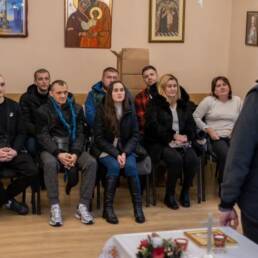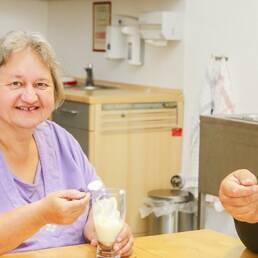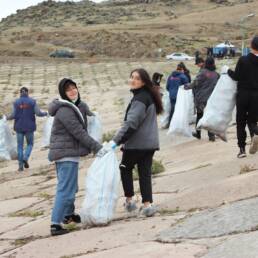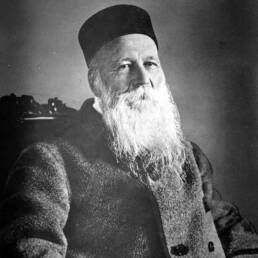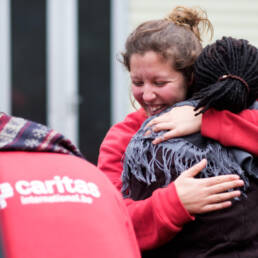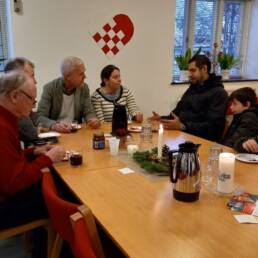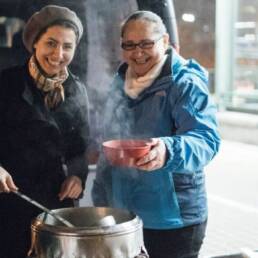Author
Kirill Yermakov
PR-specialist
Caritas Kramatorsk Charitable Foundation (Ukraine)
During the lockdown in early 2020, elderly people became even more lonely when it was suddenly not safe for them to go out. Therefore, Caritas Kramatorsk engaged young volunteers to accompany elderly people in their local communities.
This is how the ‘Grandchildren Online’ project came to be. The young volunteers call lonely elderly people over the phone and talk with them. Thanks to this activity, elderly people are given the attention everyone needs and do not feel abandoned. Volunteers listen to their fears and worries, give them official information on the COVID-19 situation from the Ministry of Health (to combat fake news) and give them psychological support. Volunteers can also meet with the elderly in person – visit them, go for walks together and accompany them during visits to the hospital. They call elderly people two or three times per week and set a suitable day and time for phone calls.
Olena Kudayeva, a volunteer with Caritas Kramatorsk, has been a participant in the Grandchildren Online initiative for about six months. She spoke about her own experience in and impressions of the project and shared how important it is to be part of the initiative.
As a volunteer, I have been talking to Mrs. Valentina on the phone for several months now. Mrs. Valentina was forced to move to the town of Sloviansk from her native Horlivka, near Donetsk, leaving her home and everyday life due to the war. Her close family members died a few years ago. So she was alone. She has a severe bone disease that prevents her from moving on her own. Social workers visit her and help with the purchase of food and medicine. Neighbours and a few acquaintances also sometimes visit. But most of the time Mrs. Valentina is alone, with only the TV for entertainment.
During the time we have known each other, Mrs. Valentina has become a close person to me. My family members know and ask about her. When for some reason we cannot communicate for a long time (for example, due to her ill health or my own illness and surgery), I begin to worry and miss our communication. These conversations have become part of my life.
The most important part in our communication is that we support each other when one of us is having a hard time. It’s incredibly nice to know that there is a person who cares about you.
So that my calls would not catch Mrs. Valentina by surprise, we set the day and time of communication in advance. But I always greet her on the holidays. It is essential, because on holidays single people feel most lonely and unneeded.
I am a psychologist, so I understand that communication is an important human need that cannot be ignored. Participation in this project changes both the volunteer and the person we are supporting. You start communicating with a stranger, but after a while it seems that you are calling a close relative for your own inner needs.
I believe that such projects and initiatives are extremely necessary for society. There are many lonely elderly people around who in some way remain isolated from society and need support. It is impossible to leave a person without live communication, because communication and the feeling of need are critical psychological needs, which are no less important than physiological needs. This project solves the problem of loneliness of the elderly and has drawn attention to the existence of such a problem for the community as a whole.


